Outreach workers are 'visible guardians' on streets
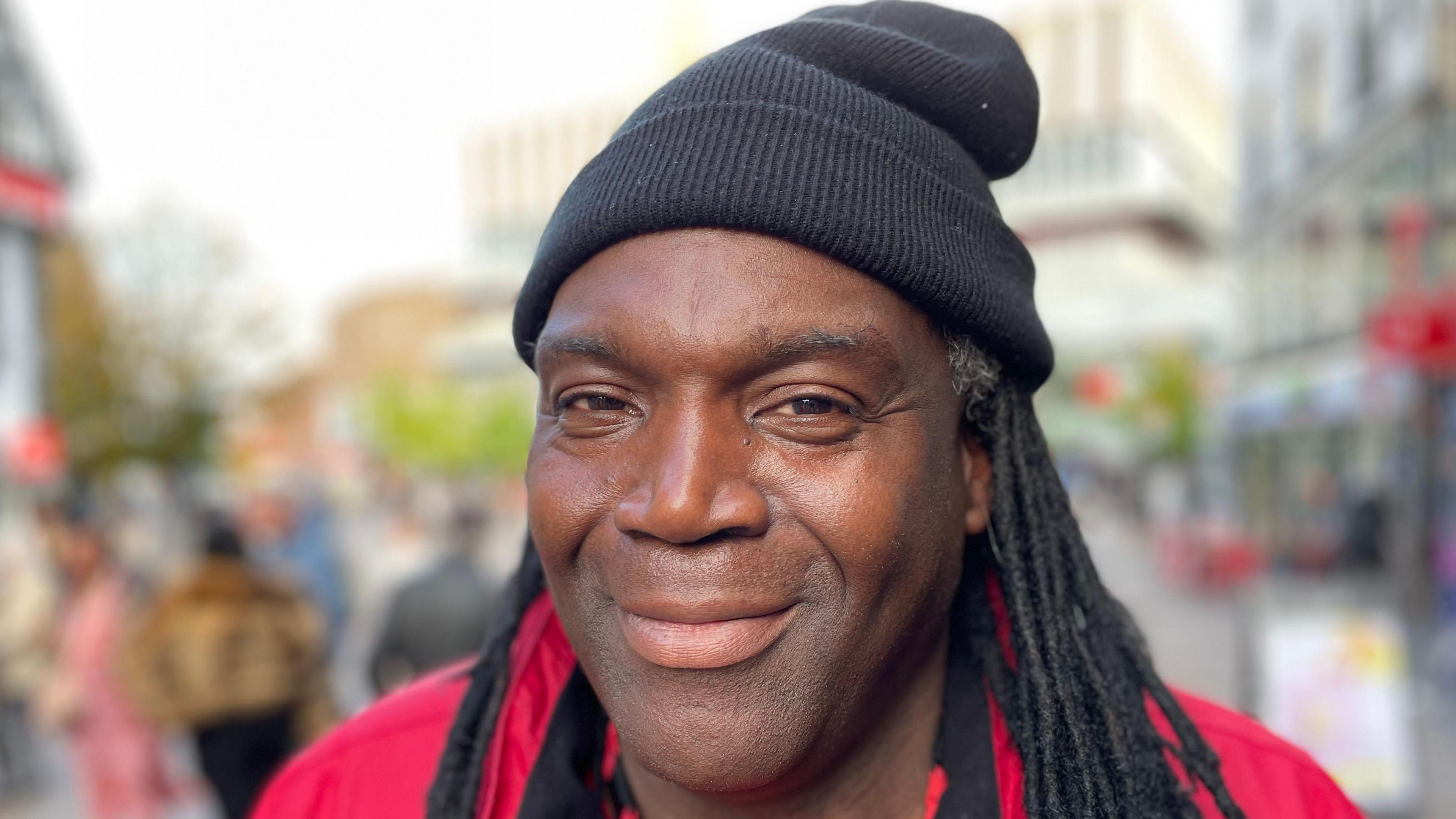
Clifton Muir is a street outreach support worker
- Published
Two youth workers are tackling crime in hotspots in a city by offering support to troublemakers and potential victims.
Clifton Muir and Ifthkar Majid are trying to build a rapport and challenge unacceptable behaviour in Leicester.
They also offer advice on everything from drug treatment and homelessness to finding jobs and training courses.
Leicestershire Police said the outreach workers were a "really effective tool" in diverting young and vulnerable people from crime.
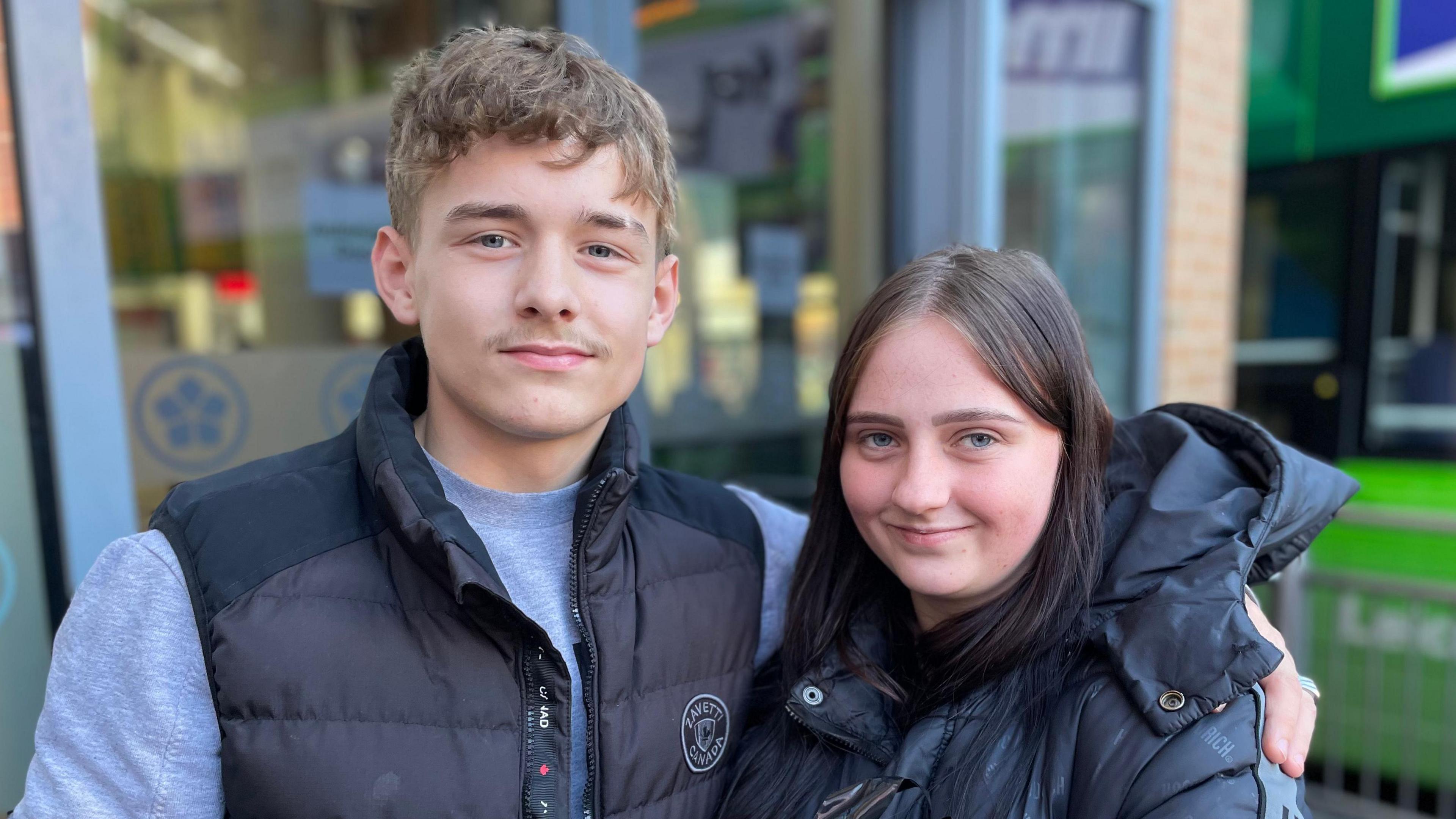
Kane Goodwin, 18, and Amy Cameron, 19, spoke to the outreach team at the bus station
Haymarket Bus Station is one of eight locations where the street outreach team patrols on several afternoons and evenings each week.
Mr Muir and Mr Majid, who are employed by the Leicester charity Turning Point, external, chat to couple Kane Goodwin and Amy Cameron outside the station but are interrupted by loud revving from a motorbike.
"Exactly that," says Mr Goodwin, 18. He has been explaining how masked youths cause trouble near his home in Braunstone.
Mr Goodwin says he has been threatened with knives and hammers in New Parks, and his nose was broken in a random attack by strangers at Braunstone Park.
Mr Muir asks Mr Goodwin what precautions he is taking as a result, adding "you need eyes in the back of your head".
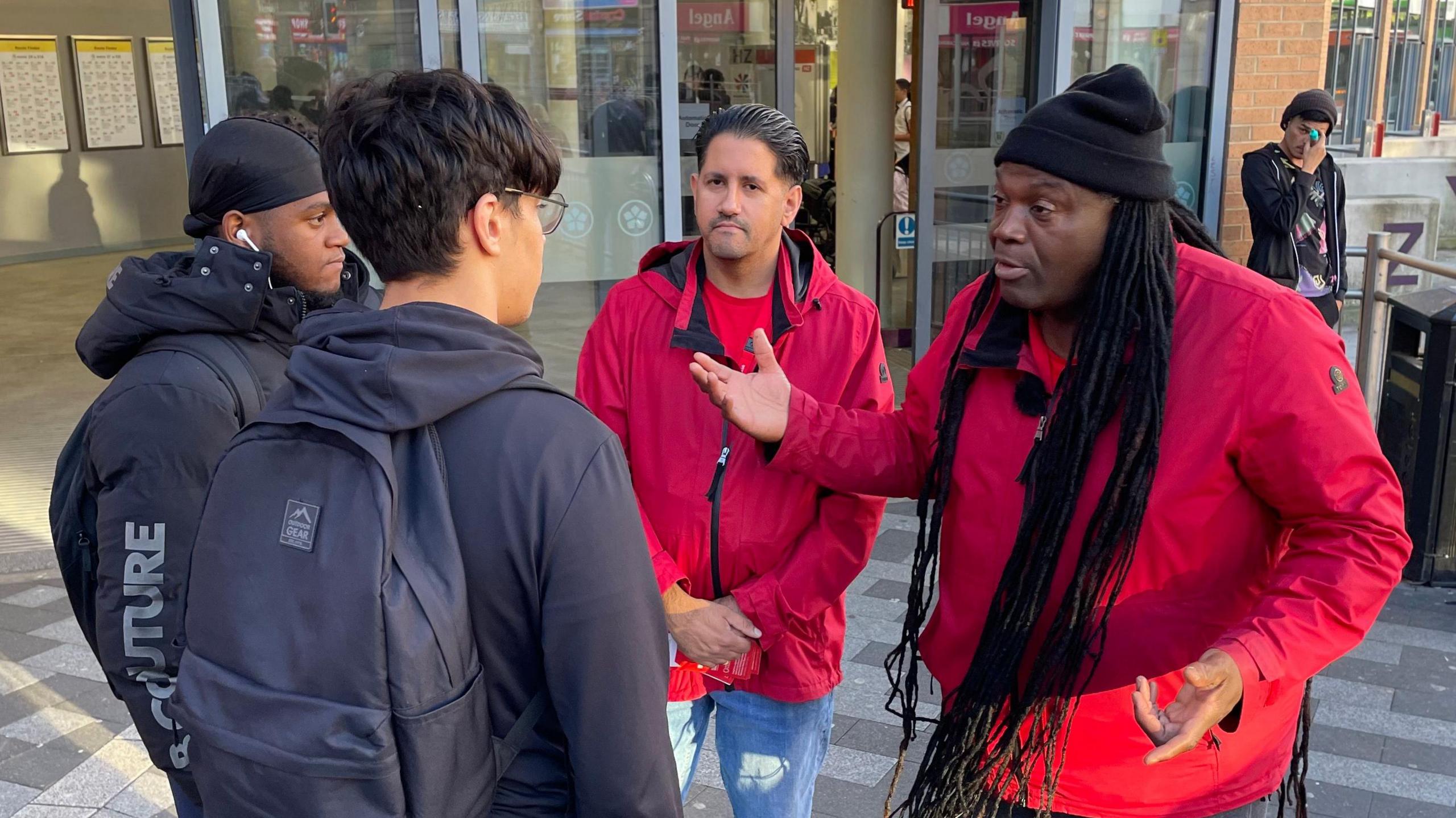
The street outreach team offers safety advice to college students
As the workers discuss crime prevention with a group of college students, Mr Muir spots a young cyclist holding a large cannabis joint and shouts "don't be doing that".
"You just challenge them," Mr Muir says. "Because if you don't challenge them, there's going to be anarchy.
"It's going to be all right for them to draw a knife on you, because it just grows and it grows."
College students Mustafa Seedat, 19, and Archie McNeill, 18, are impressed with how Mr Muir de-escalated one situation.
"They genuinely wanted to help us," Mr Seedat says. "To keep us safe on the streets."
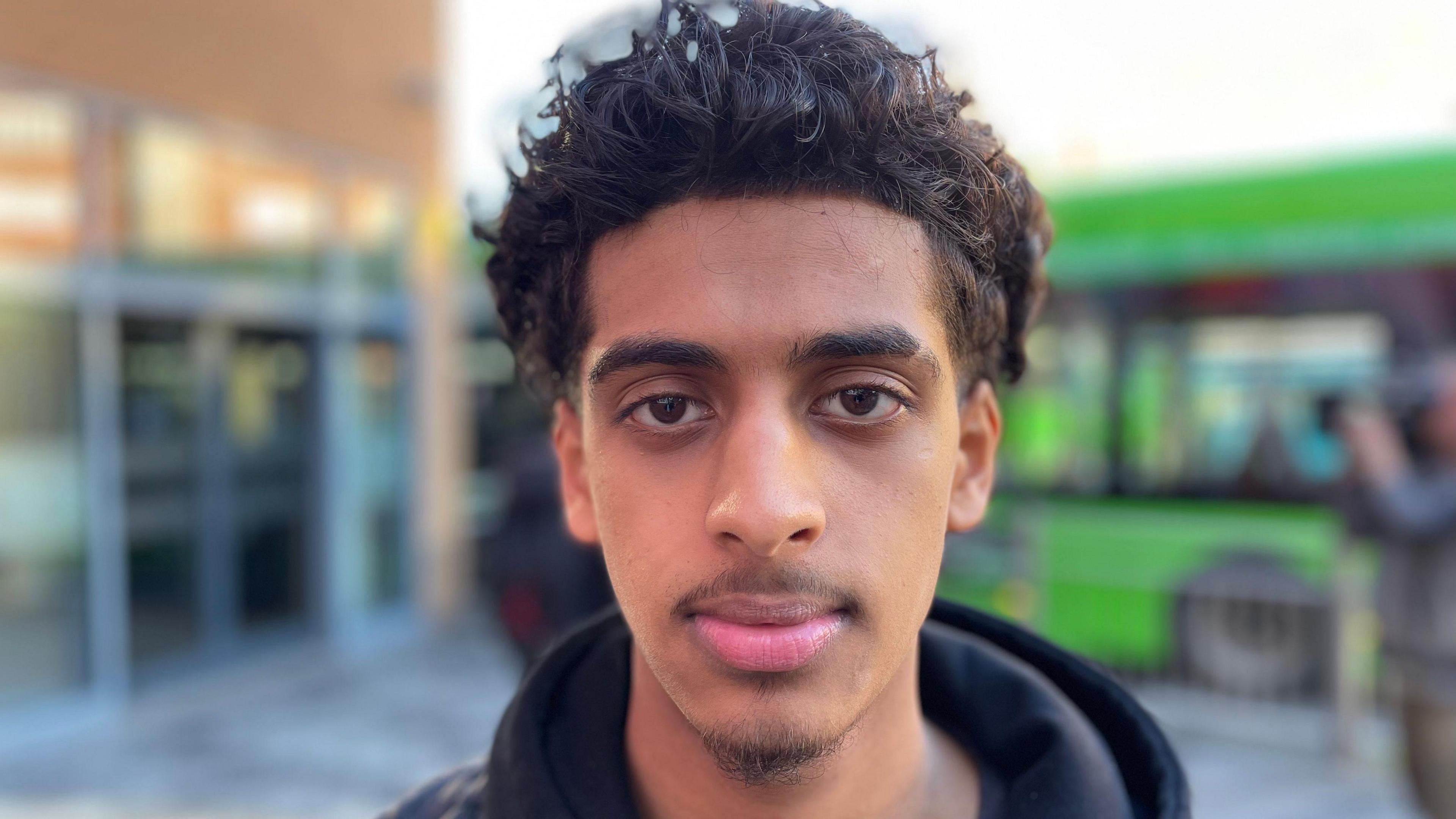
Mustafa Seedat says Mr Muir taught him how to de-escalate situations
The outreach team also helps people who are desperate. Mr Majid says they found a woman at the city's Clock Tower with two suitcases and nowhere to stay.
She said she had arrived in the UK on a care worker's visa, but the employer did not honour her job offer.
The woman told Mr Majid she ended up begging and was exploited for sex, so he found a place in a hostel that helped her get her life back on track.
"She's a lot happier," says Mr Majid.
"She tells us all the good news stories. She's found work. She's found her own accommodation."
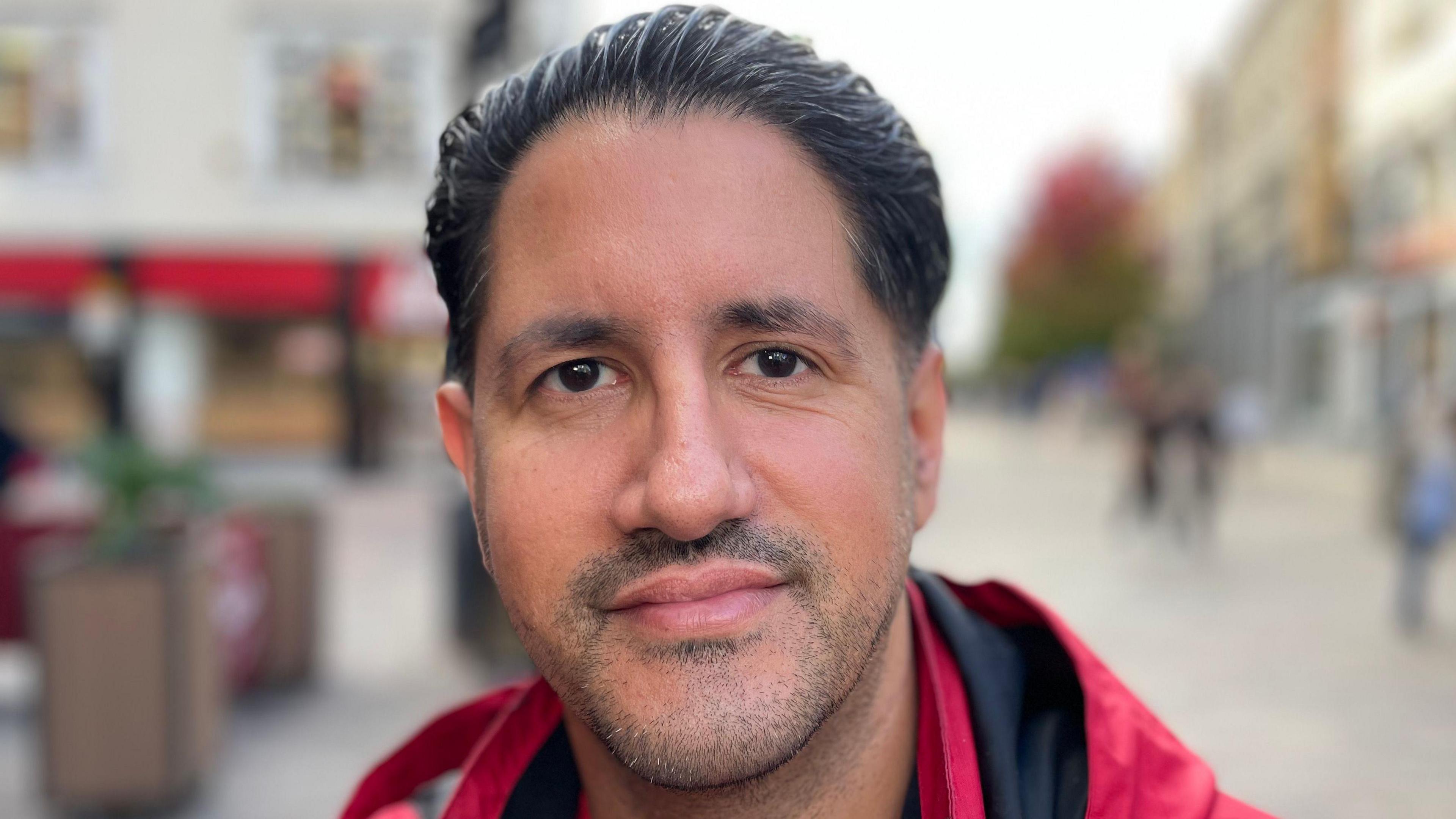
Ifthkar Majid helped a homeless woman who had been exploited for sex
Mr Muir says the team has already worked with a group of young people who were "smashing up" the bus station and intimidating elderly passengers.
Bethany Shakiba, from the charity Turning Point, says the group's ringleader was a young woman who was also causing chaos in shopping centres.
"By engaging in those conversations, we found that there was a lot going on at home," she says.
"What our team has been able to do is build that relationship. And that's led to positive change."
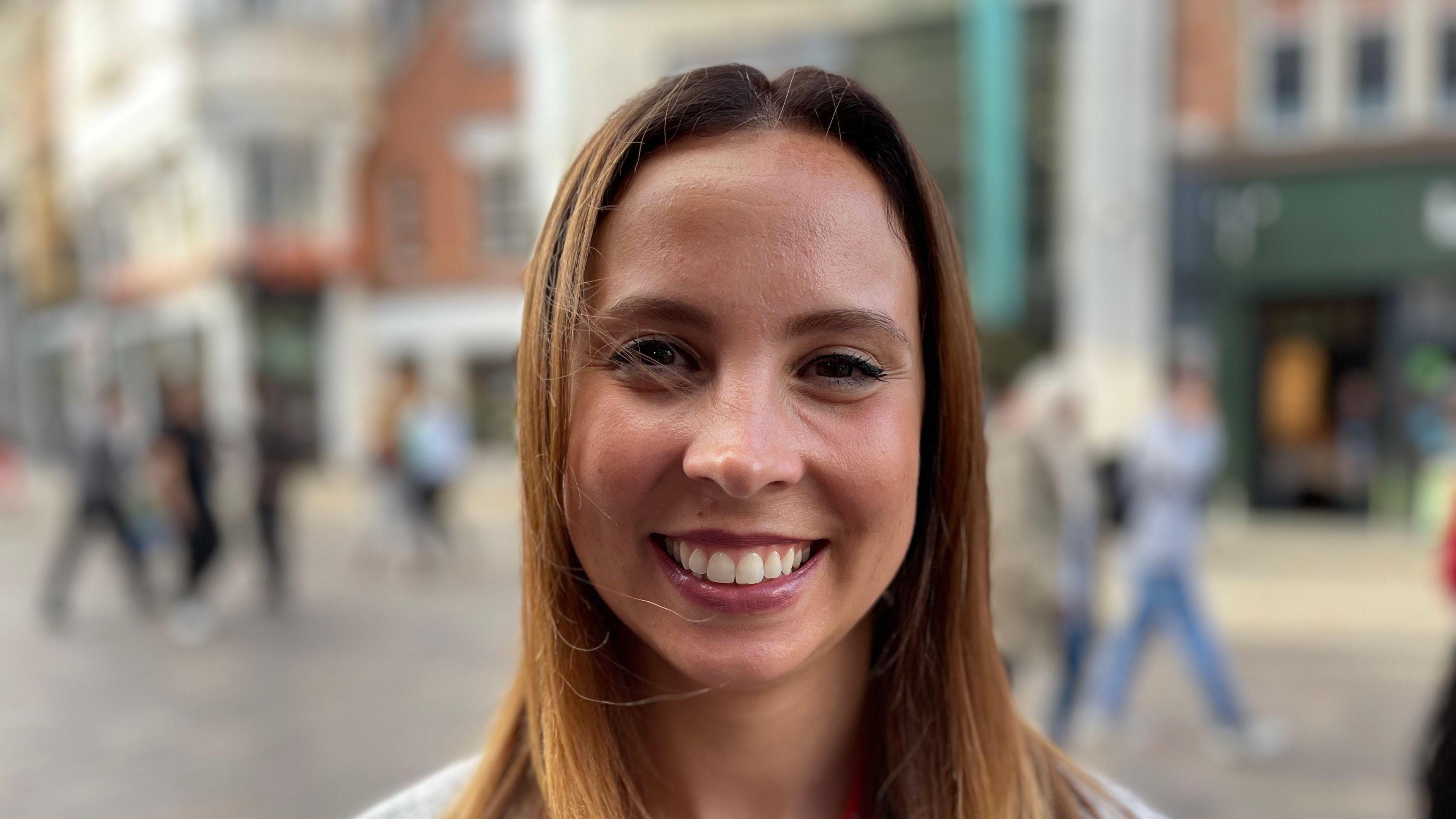
Bethany Shakiba from Turning Point is team leader of the street outreach project
In that same location near the Clock Tower - there is a strong whiff of cannabis as Mr Muir and Mr Majid talk to three teenage boys.
"You're not getting yourself into trouble, are you?" Mr Muir says. "Seriously, it smells horrible."
He encourages them to seek help for substance misuse, as Mr Majid hands out leaflets and offers help with job applications.
Then a smaller boy appears, smoking cannabis. He tells Mr Muir he is 13 years old.
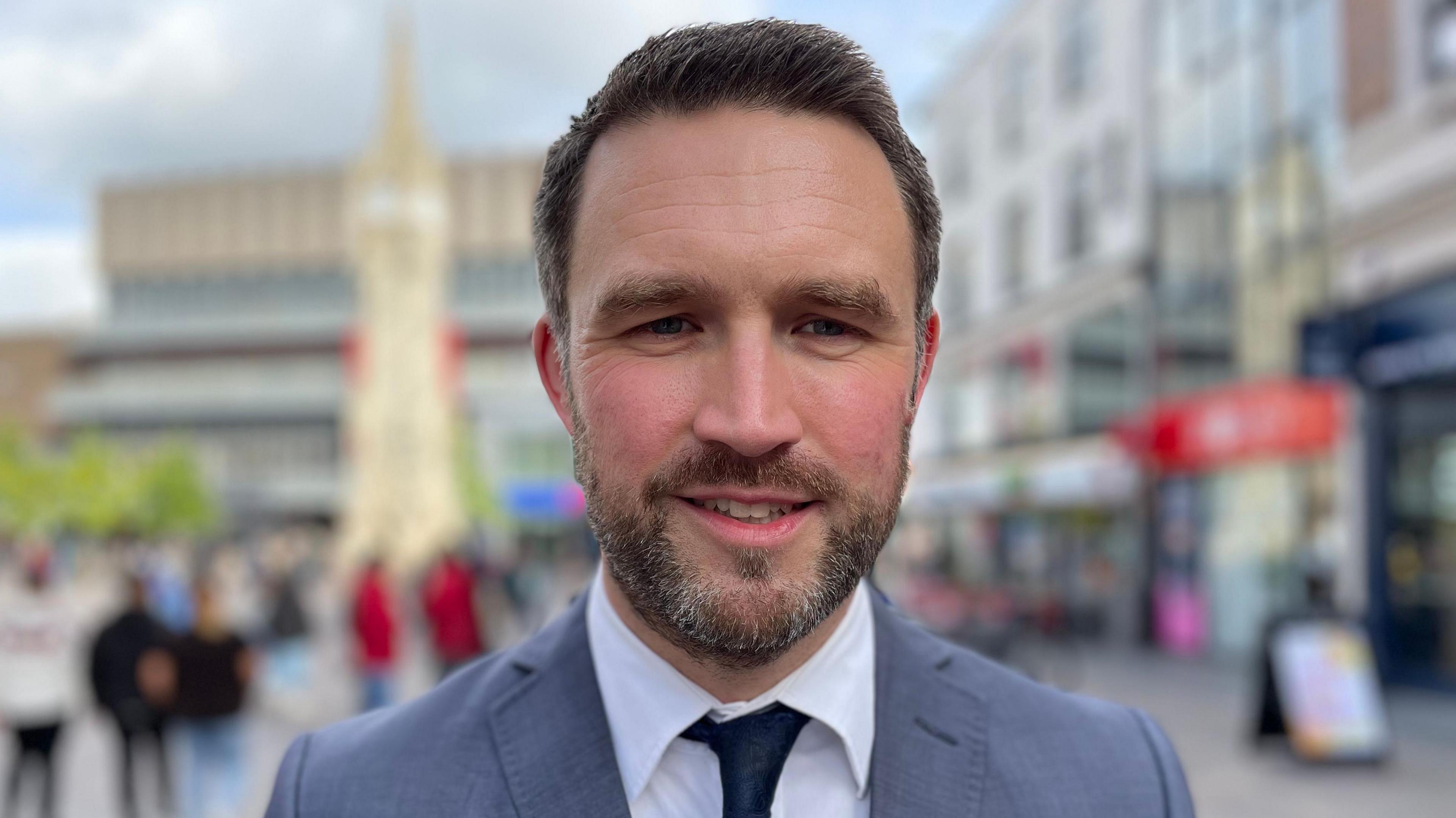
Det Insp Mark Brennan, from Leicestershire Police, says policing is not the only solution
Leicestershire Police recorded a 39% reduction in violent crime and anti-social behaviour in the outreach team's hotspot areas last year.
Det Insp Mark Brennan says the outreach team are a "really effective tool" in diverting young and vulnerable people from crime.
"Obviously, policing is a big part to preventing crime, but the street outreach have wider skills to get underneath the issues. They are a visible guardian," he added.
Get in touch
Tell us which stories we should cover in Leicester
Follow BBC Leicester on Facebook, external, on X, external, or on Instagram, external. Send your story ideas to eastmidsnews@bbc.co.uk, external or via WhatsApp, external on 0808 100 2210.